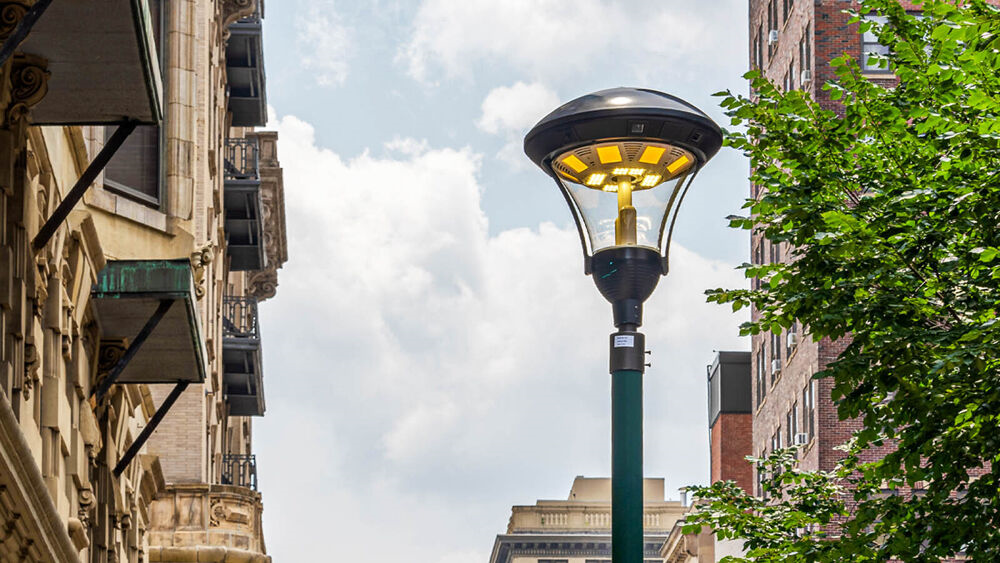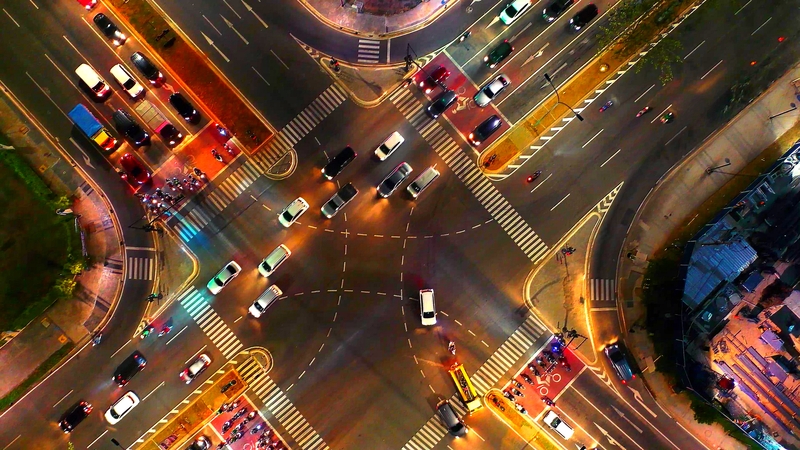
Photo: Comcast
Comcast is serious about smart cities
25 April 2022
Comcast says it’s in the smart city space for the long haul, not just the backhaul. Caroline Goodbody and Jake Purcell talk to Cities Today about the new business unit.
There is a new contender in town for smart city pitches – Comcast.
While the company is well known for its connectivity, it doesn’t spring to mind for most as a smart city vendor. But after dipping its toes into the water a couple of years ago to explore options, Comcast has launched its most recent pilot on home turf with the City of Philadelphia, focusing on smart streetlighting.
It has also created a new dedicated business unit, which “is an indicator of the excitement the company has in seeing this as a major growth area,” said Caroline Goodbody, Director of Product Strategy and Marketing.
The streetlight pilot in Philadelphia’s Midtown Village, which commenced in January following pandemic-related delays, incorporates 14 sensor-equipped streetlights that will count pedestrians, vehicles and cyclists, as well as monitor humidity and air quality.
“There’s a lot of opportunity with this data to better inform how we as a city operate and make decisions that are best for our citizens,” said Emily Yates, Philadelphia’s Smart City Director.
Other partners in the project are non-profit accelerator US Ignite and technology vendor Juganu.
“Comcast provides underlying connectivity to backhaul the solution,” said Jake Purcell, Director of Sales Operations for Smart Cities at Comcast. “We connect the smart lighting platform to our fibre infrastructure, acting as network and connectivity integrator.”
The project is an opportunity for the city to test out smart streetlighting technology and potentially scale it in the future, and a vehicle for Comcast to prove itself in the smart cities space.
Goodbody said: “Our collaboration with the City of Philadelphia is a great opportunity to give future customers a reason to trust us and understand the full services that we could bring.”
The pilot also represents an important showcase due to the particular focus that Philadelphia has placed on privacy and transparency. The optical sensors do not transmit or store video, and they are not capable of facial recognition. The city has set up detailed FAQs for residents and established an expert advisory board.
Next steps
Solutions that Comcast is offering alongside smart lighting include smart parking and curb management, video analytics and connected buildings.
From here, Comcast has ambitions to lead smart city projects as the general contractor, or in other cases could play a supporting role as part of a smart city ecosystem.
“These are very complex solutions,” said Purcell. “The one similarity across all of them, though, is the underlying connectivity infrastructure required for deployment.”
He added: “Are we going to go and apply for an LED lighting RFP for 200,000 lights? No, we’re not that partner right now. But for cities that are looking to deploy highly intelligent smart lighting fixtures that have underlying connectivity needs, that’s the right fit for us.”
Comcast is now in the process of building out its own partner ecosystem, with Eagle Eye Networks, Juganu, Logical Buildings and others already on board, and the company is looking to gradually add more innovative companies based on use cases and demand.
Goodbody said: “Now that we have this mesh network in place, we’re also interested in testing other capabilities and services with the City of Philadelphia pilot. Part of this is about leaving room for new IoT solutions and use cases as needs change in the future.”
Comcast also has a smart waste implementation in College Park, GA, and a smart building deployment in Fort Collins, CO.
Now, Comcast is ready to expand its three-person team to 12 members by the end of the year.
Historically, the success of major telecom companies’ forays into smart cities has been patchy. Some initiatives have failed to gain traction, scale or deliver returns fast enough for big corporations.
However, Comcast believes that taking the time to learn and credential itself with a city like Philadelphia, and the current “moment” with historic federal funds flowing to US cities for infrastructure upgrades, could make the difference.
“This is an exciting space,” said Goodbody. “In addition to making cities better places to live, projects like this can help reduce overall cost for the city and help accelerate that modernisation of urban centres.”
She added that Comcast is established and dependable for the long-term nature of smart city projects: “We’re not going anywhere.”









